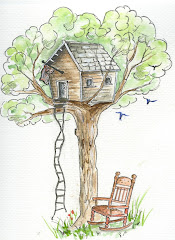
One of the first things I thought about with this book was about all the bullying portrayed, and the hierarchy created by the boys, as seen in the order they stand in line to get their canteens refilled. Once Stanley gives X-Ray the golden lipstick tube, Stanley is allowed to move up in line in front of Zero, and so on. I thought it was interesting that X-Ray, though he was one of the smaller boys, was in charge of the group, and that Stanley gets tormented by a boy much smaller then him back at his school. Perhaps it’s got something to do with the Napoleon complex? I thought the fact that Stanley was overweight was important here, because it’s typical to think that the big kid is going to be the troublemaker, while the smaller ones are usually victims, but we often see the opposite in this book.
Going off of this, I thought about what big bullies even the adults are in this book, which made me think about Holes as a book about kids outwitting evil adults for their own good and the good of society. Other books from this semester that fit into this category are Harry Potter, The Golden Compass, and Number the Stars, as each main character saves others (both their peers and adults) from certain doom, (although admittedly, Lyra doesn’t completely fit here as Roger ended up dead). I tried to think of more examples outside of our reading, but all I could come up with off the top of my head was Matilda. Can anybody else think of others?

In this book, Stanley and Zero save the rest of the camp from the cruel living conditions and the overwhelming monotony of digging holes for the rest of their young lives. The Warden, Mr. Sir, and Mr. Pendanski are all pretty despicable adults if you think about it; The Warden scratches people with poisonous nails as punishment, Mr. Sir deprives children of much-needed water in the unbearable heat, and Mr. Pendanski, despite his cliché-filled speeches brimming with “hope” and good advice, is verbally abusive to Zero, who he thinks is stupid, and only capable of digging holes. The end of this book was so satisfying, as all three got called out on their wrong-doings by Stanley’s attorney, and the boys not only survived the lizard incident, but also got justice and money in the end.
I feel that books where children come out on top really gives them an agency and power not often seen in real-life. How often does the oppressed kid outsmart the adult(s) that are mistreating them, and end up saving the day? Most often in reality, kids are the victims, and their size, knowledge, and ability (or lack thereof) often keeps them on the losing end of power-struggles. Perhaps when kids read books like those mentioned they are empowered to do something to stand up to those that are hurting them or are blatantly doing wrong. It may be scary standing up to an authority figure (and it may go badly), but I think it nonetheless encourages children to challenge evil, even if it just means telling a trusted adult about abuse or bullying. Little by little kids can make a difference!

Here is a website that kids can go to, to learn more about bullying and what they can do to stop it. There is also a handy section for adults about what they can do if a child tells them about bullying they have witnessed or are experiencing.


